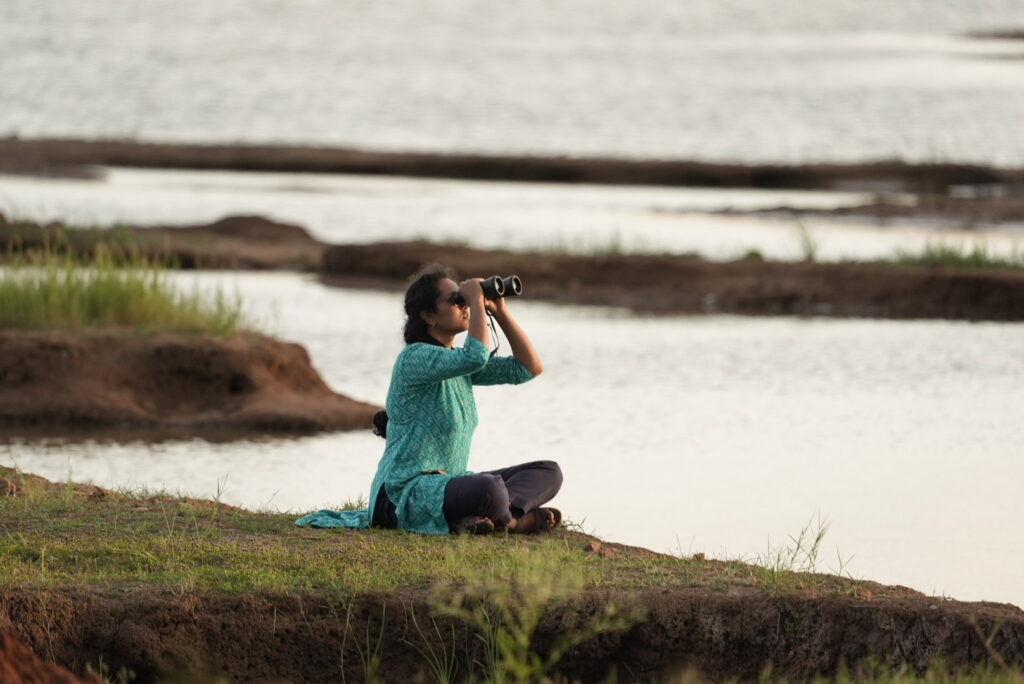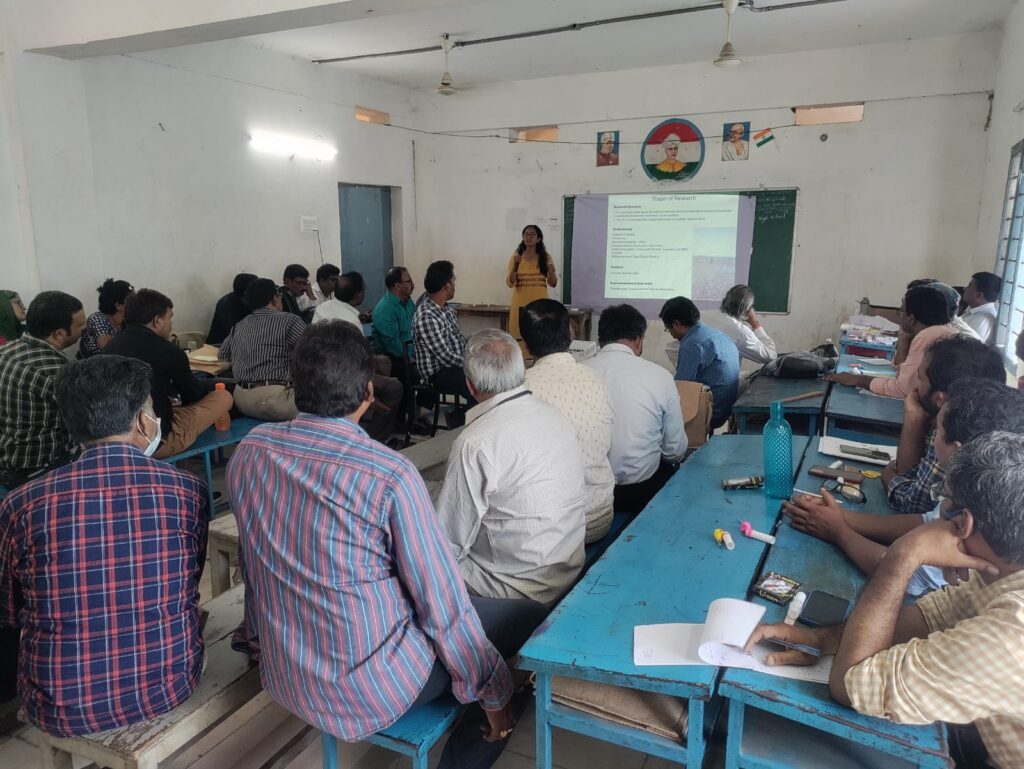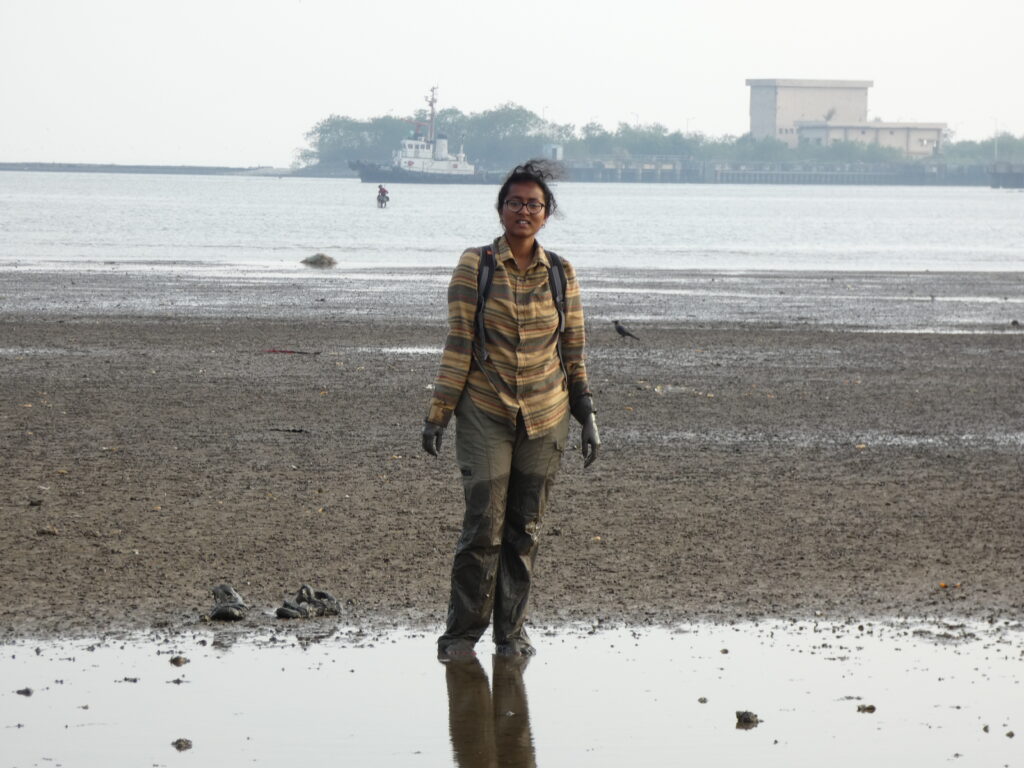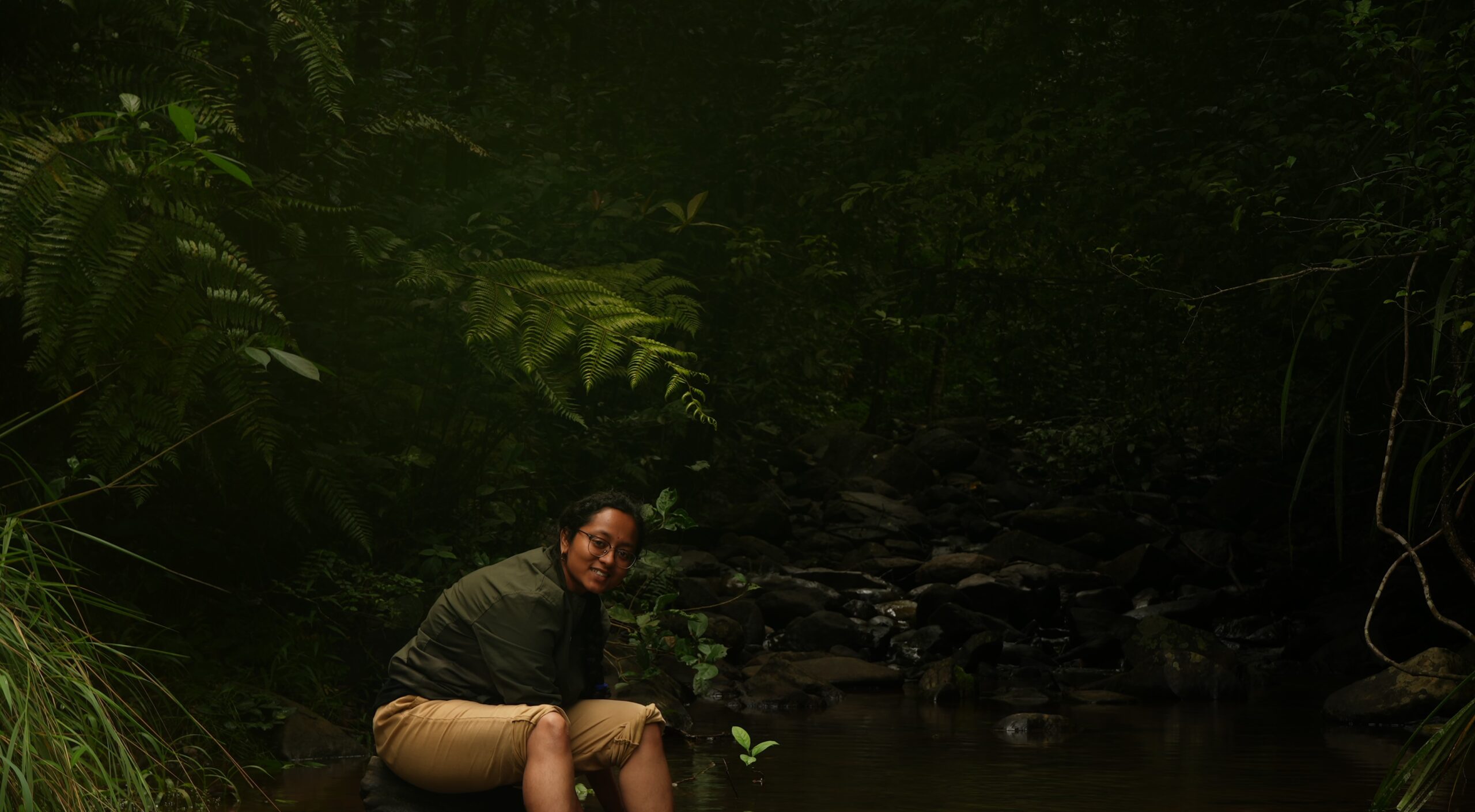An interesting incident that made a strong impression on me and drove me towards a career in wildlife was during my first internship at Agumbe Rainforest Research Station (ARRS), Karnataka. I interned for a project on the nesting behavioural studies of Yellow-wattled lapwing, our fieldwork mainly involved noting ‘activity budget’. Most of the days in our fieldwork were spent observing courtship, parental and territorial behaviour but one day of our fieldwork was particularly interesting. On that specific day suddenly, there were alarm calls from all the lapwings and all of them flying in the air, flapping their wings. There was eeriness in the air. Then we saw a rat snake trying to feed on the eggs of the ground-nesting lapwing. It was a wonderful event to see all the adult birds unite and chase the snake away and the continuous alarm call rang for almost 15 minutes. The snake finally gave up and the environment once again became calm. The lapwings went back to their nests and were lost in the camouflaged grassland as if they didn’t exist. Those 15 minutes have had a powerful impact on me even today. It was wonderful to witness such parental behavioural and community protection.

This is how my love for birds and nature took shape..
I grew up in Hyderabad, a place which has very few green spaces left. Every summer vacation my parents used to take me to those magical natural habitats in different states. The trip that is etched in me forever was a trip to ‘Ponmudi’ in Kerala when I was 9 years old. I remember the trek in the forest along a stream, my first leech sighting, the magnificent waterfall and the melodies bird calls of invisible birds. That’s how I got hooked on nature.
When I was 10 years old, I thought to myself that I wanted to be a scientist. Science has always been my love ever since I can remember but the turning point of considering Wildlife research was definitely after my internship at ARRS when I was 20 years. After this, I interned and volunteered in several projects and I realised I love working in the field, understanding nature in- situ and I am fond of academia. I always wanted to be in conservation but I was not sure how research could aid in conservation. Only after reading about the work of some good science that helps in conservation and understanding how NGOs like NCF translate research into conservation, I was convinced to pursue research.
I am working as Junior Research Fellow and PhD Scholar at Salim Ali Centre for Ornithology and Natural History, Coimbatore under the supervision of Dr. T. Ramesh and Dr. Riddhika Ramesh. My work focuses on understanding the movement pattern of Spot-billed Pelican and characterization of the wetlands with respect to their habitat use. I am keen on working on wetlands birds, specifically on shorebirds, which I intend to pursue in the long term. I was lucky to receive a grant from Oriental Bird Club to work on shorebirds at Kakinada coast of Andhra Pradesh. A glimpse of my work shorebirds at Kakinada and brief results presented at Bird Monitoring India symposium.

Training Government School teachers on Research methodology and awareness of mudflats and shorebirds at Government School.
I love what I do because..
Without a second thought, I would say field work like most ecologists say. It’s fascinating to observe the animals in their natural habitat. It helps us understand and break down complex systems into their simplest units and forms. I also enjoy when I am stuck at a point at any stage of research, where I am unable to decide on the right methodology or analysis or interpret the data but solve the challenge after struggle. It gives an immense sense of satisfaction and relief. The best part of research for me is that you keep learning something new always. Conservation always throws up challenges and I love to listen to the researchers and locals who worked for years and either succeeded or failed in their mission but there is so much to learn.
 Some field days gone wrong in mudflats: worth it to watch the waders
Some field days gone wrong in mudflats: worth it to watch the waders
Challenges I have faced..
For a long period, I was confused as to how much scientific papers contribute to conservation. There are voluminous amounts of scientific papers produced but how many of them have actual implications? This was one major question in my mind but after reading some good papers and how good science can help conservation I am convinced.
Another challenge I faced in the field was due to my gender. When I was doing fieldwork independently in Kakinada, I had to visit a mudflat and do total counts of shorebirds. The mudflat was adjacent to a fishers’ village and only fishermen of the village were seen in the mudflat. The fishermen were very suspicious and also excited to see a single woman coming from a different state and working on birds which was absurd and hard to digest for them. The first two weeks were turmoil due to the uncomfortable looks and behaviour of some fishermen. However, with time they started to understand my work, respect me and finally I gained their trust. Being a woman, it is very important to stand your ground because many times we face situations where people want to take us for a ride. When people realise they can’t scare you or fool you and when your intentions are clear, it follows the respect that you deserve.
My advice for young researchers is..
- I would like to suggest that all researchers in the field should keep themselves updated regarding the advances in the field. It helps us understand the pace and direction in which research is moving currently.
- It’s important to keep ourselves motivated during our journey. It is very inspiring to read about the earlier ornithologists and ecologists who have made tremendous efforts to study a single bird species when there were hardly any facilities. It is also good to listen to people who are consistently pursuing their goal for decades or more to achieve something.
- For women researchers, I suggest that one should be bold and should be able to open up against any gender-biased criticism. It takes courage to do it but once you do it, you can be at peace with yourself.
Ms. Rachaveelpula Sreeja
Email: [email protected]
Junior Research fellow, SACON.
Personal blog
LinkedIn
Instagram


Interesting and inspiring
Keep going.Best wishes
Awesome 👏 👏👏, you are very inspiring and a role model for young girls who want to pursue research in challenging subjects.